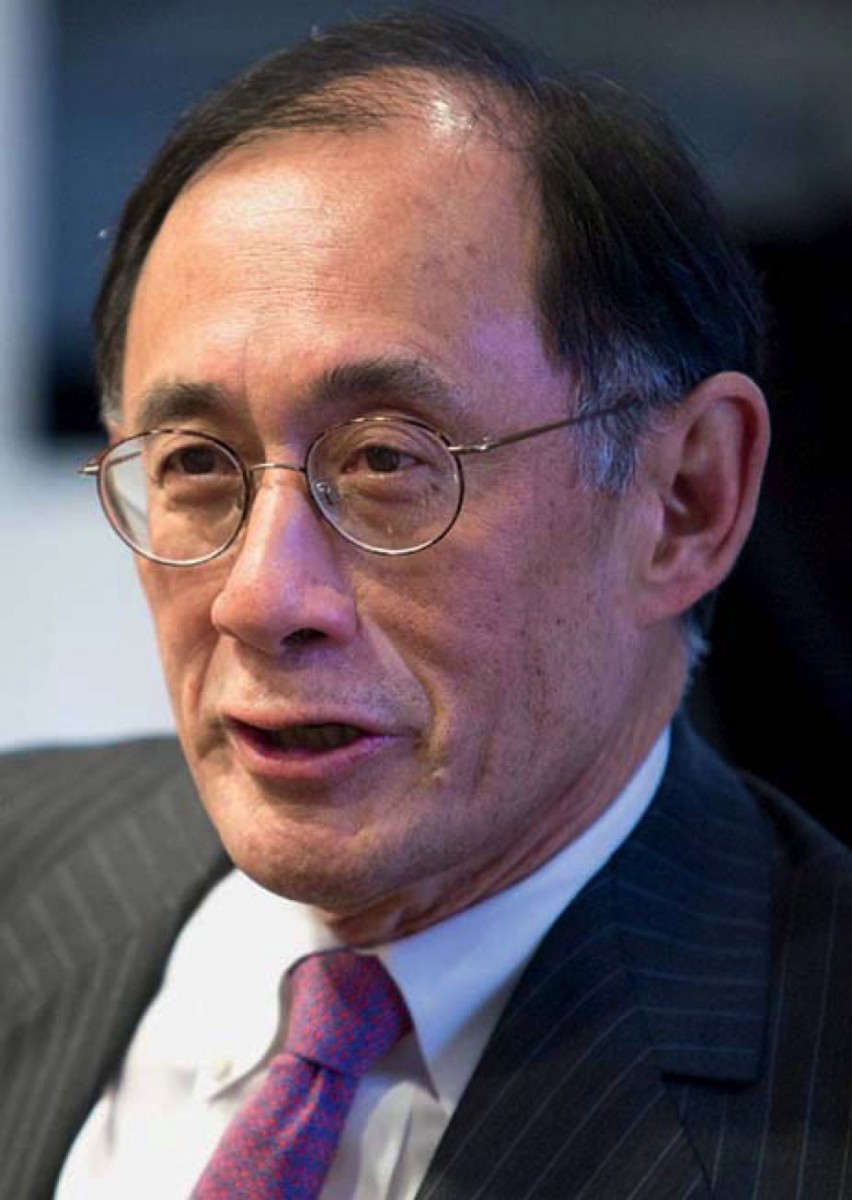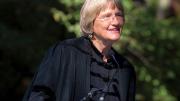Drew Gilpin Faust announced on June 14 that she would step down as Harvard’s twenty-eighth president on June 30, 2018, the end of the new academic year, concluding service that began on July 1, 2007. Her planned retirement from Massachusetts Hall is a logical transition:
- It coincides with the scheduled completion of The Harvard Campaign (which had raised $8 billion as of the date of her announcement).
- It echoes the orderly transition effected by Neil L. Rudenstine, who announced in May 2000—just after the celebration for the $2.6-billion University Campaign—that he would conclude his presidency in June 2001.
- Conveying the news now provides the Harvard Corporation (enlarged and reconstituted during Faust’s tenure) with plenty of time to conduct a search for her successor. It also affords her time to pursue remaining items on her likely to-do list: further fundraising (for the Allston science and engineering center shown above, House renewal, financial aid, the arts, and so on); and advocacy for higher education and public support for basic research (at a time of heightened political rhetoric concerning both).
From a personal standpoint, the transition should have the welcome effect of enabling Faust to contemplate the end of a grueling travel schedule (campaign events worldwide, and this year, frequent trips to Washington to discuss changes in immigration policy, federal funding for research, and more), and to enjoy time with her husband, Charles Rosenberg, Monrad professor of the social sciences emeritus (an historian of medicine), and family members and friends. Faust turns 70 this September, and Rosenberg will be 81 in November.
Envois…
In her message emailed to the community, Faust wrote:
It will be the right time for the transition to Harvard’s next chapter, led by a new president.
It has been a privilege beyond words to work with all of you to lead Harvard, in the words of her alma mater, “through change and through storm.” We have shared ample portions of both over the last decade and have confronted them together in ways that have made the University stronger—more integrated both intellectually and administratively, more effectively governed, more open and diverse, more in the world and across the world, more innovative and experimental. The dedication of students, faculty, and staff to the ideal and excellence of Harvard, and to the importance of its pursuit of Veritas has made all this possible. I know this commitment will carry Harvard forward, from strength to strength, in the years to come.
Separately, the Corporation’s senior fellow, William F. Lee, wrote of Faust, “For the last 10 years, she has approached every day with a singular purpose: to ensure that Harvard remains the preeminent academic institution in the world by constantly driving Harvard forward.” He reminded the community that during that period, her presidency was especially challenging:
She came into office after a period of strife and controversy on campus, and she quickly restored trust and a sense of common purpose.… But just over a year later, Harvard faced an even more profound challenge—as did the rest of the world—in the form of a global financial crisis. While the crisis challenged every major research university, Harvard was particularly hard hit. Drew acted swiftly and decisively to minimize exposure, curtail risk, and chart a disciplined and responsible course forward. She made hard decisions—and unpopular ones.
Their full statements, and a detailed overview of Faust’s presidency (the important challenges sketched in Lee’s note, plus academic priorities such as engineering and applied sciences; governance reforms; the rebooted fundraising campaign; initiatives on diversity and inclusion; and more) and an outline of pending business for the Corporation and a new president (investing in life sciences amid uncertainty in Washington, D.C.; the University’s evolving, and no less uncertain, financial model; articulating Harvard’s strategy leading up to its four-hundredth anniversary in 2036) are discussed at length at harvardmag.com/faustexit-17. As is customary, Harvard Magazine will publish a full review of President Faust’s administration at its conclusion, following what may well be an eventful final year.
…and the Search

William F. Lee
Photograph by Stephanie Mitchell/HPAC
In a conversation on June 14, Lee commented on organizing a search to ensure that “the transition is smooth and in the best interest of Harvard.” It will differ from prior searches because the Corporation now comprises a dozen members plus the president (who will not be involved)—twice the size of earlier cohorts. Lee said the enlarged Corporation brings to the task broader “experience, expertise, and judgment” than were available to the senior governing board in 2006-2007, and more channels through which to reach out for ideas and suggestions. He also noted the “unique” asset of having four university leaders affiliated with the Corporation (Faust; Wellesley and Duke president emerita Nannerl O. Keohane, whose service concluded June 30; Tufts president emeritus Lawrence S. Bacow; and Princeton president emerita Shirley M. Tilghman) and said, “We’d be crazy not to get the benefit of that.” Bacow and Tilghman will obviously be directly involved, Lee continued, and he expects that Keohane’s continued counsel will be sought as well.
Consistent with past practice, three Overseers will join the Corporation members, making a 15-person search committee. The full roster was released in a July 11 message from Lee to the community. He also announced that following the precedents set in 2006, when the search for a successor to Lawrence H. Summers resulted in Faust’s appointment, faculty and student advisory committees will again be formally organized—joined this time by a committee of staff members. Lee solicited perspectives on:
- the principal opportunities and challenges likely to face Harvard and higher education in the coming years and the priorities that our new president should have most in mind;
- the qualities and experience most important in the next president; [and]
- any individuals you believe warrant serious consideration as possible candidates.
Comments may be directed to psearch@harvard.edu or mailed to Harvard University Presidential Search Committee, Loeb House, 17 Quincy Street, Cambridge, Massachusetts 02138.
Further details on the search appear at harvardmag.com/prezsearch-17.









